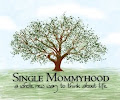Mark Twain once commented that "Books are for people who wish they were somewhere else." And over the course of the Winter break, I've had the pleasure to travel to three interesting places, and encounter a myriad of captivating characters.
Reading has always been an escape for me. A place where I can tune out the stresses/pressure of my life and delve into the loves, dramas, and worlds of others. The books that I love the most have enveloped me in their characters' lives so much so that I think about them once I'm long finished with the book. Although the books I've read over break have all had distinct and unique stories, they have all been tied together through the common thread of deft characterization. Each of these books was an interesting read that I'd encourage you to pick up as well.
I love books. So feel free to comment on any of these (if you've read them) and suggest some that you think I'd like.
~~~
Midnight: A Gangsta Love Story

When Sister Souljah's novel,
The Coldest Winter Ever, first burst on the scene nearly 10 years ago, the streets were abuzz with her gritty tale of Winter Santiaga, an around-the-way girl who navigates the streets to regain the money and stature that was lost when her king-pin father was imprisoned. Through Winter we meet Midnight, the calm, calculating, and beautiful underboss of her father's organization. Since
Winter was released, people have been clamoring for a sequel to the popular street-lit tale. Although the new novel, Midnight, centers around the mysterious character from Souljah's first book, it is by no means a sequel to
The Coldest Winter Ever.
When I first saw the cover of Souljah's follow-up
Midnight, I was completely thrown off by the byline, "A Gangsta Love Story." I immediately rolled my eyes at the word, "Gangsta" because
I'm completely fed-up with the wave of Street Lit that has infected the African-American literature section. But ultimately I put my initial hesitations aside and picked up the book.
At the outset of the novel we are introduced to Midnight. All quiet swagger and confidence. He begins the book by telling us how people, especially women, react to him, and we are immediately taken back to the Midnight of
Winter, and fall in love with him all over again. As the book moves on we learn that he is seven and fleeing from the Sudan with his pregnant mother, leaving behind a once-powerful father taken down by some unknown political conflict.
Although I ultimately enjoyed reading the novel, it did move slowly, especially in the beginning when Midnight recounts his life in the Sudan, his family's wealth, and his view of Black Americans. It is clear Sister Souljah was attempting to make a point about the materialism of American culture, but at times I felt she was a bit too heavy-handed in her approach. There isn't a lot of dialogue or interaction in this novel. We see the world through Midnight's perspective and are privy to his thoughts. Everything is filtered through his upbringing, his views, and experiences, which makes for a rich first-person narrative, but is a bit lacking when dealing with the thoughts and motivations of the other characters.
There are many unanswered questions in Midnight. In the beginning of the book we learn that he is the son of a very wealthy and politically important man in the Sudan. Midnight’s father teaches him lessons about life, business and manhood. He also teaches Midnight to protect himself and his family from outsiders. This lesson shapes Midnight’s life and is particularly important when he flees the Sudan and immigrates to Brooklyn, NY. The reasons behind the family's move to New York is never exposed. The reader is left to draw their own conclusions about the demise of Midnight’s father and the reasons behind his family’s sudden immigration.
The book follows Midnight as he navigates the streets of New York, translating for his mother, fighting other boys for respect, running a business, falling in love, and growing into a calculating young man. The book spans seven years and ends when Midnight is 14, which contributes to the unbelievable nature of the novel. For instance, at seven we are to believe that Midnight purchases two guns and is mature enough to not only use them, but to use them wisely while conducting business (collecting money, building business contacts, etc) for his mother's small design company. Another unlikely tidbit in the novel is that Midnight never attends American schools, and no one seems to question why he, at seven, is always in the street, but never in school.
In
Midnight we see the makings of the man who would become the mysteriously beautiful character in
Winter. In this novel, Midnight falls in love with a Japanese artist and must struggle to win her family's approval of their unlikely love, hence the novel's byline. The love story in Midnight is both engaging and a bit frustrating. Although Midnight and his love are madly infatuated with each other, neither speaks the other’s language, which makes for interesting, and improbable, situations. Their love and the struggle they must go through to keep it fuels the second part of the novel. Midnight must resolve his feelings for Akemi, his love, with his upbringing, which leads to yet another unlikely choice for a fourteen year old, and a cliffhanger ending.
Midnight is a coming of age novel about an unlikely protagonist, a young street-wise, Sudanese immigrant. Although the novel takes several questionable twists and turns, it is an interesting and fun read. As long as you approach Midnight, not as a sequel to
The Coldest Winter Ever, but as a stand-alone novel, you will not be disappointed.
~~
Next Up:
Orange Mint and Honey by Carleen Brice






.jpg)